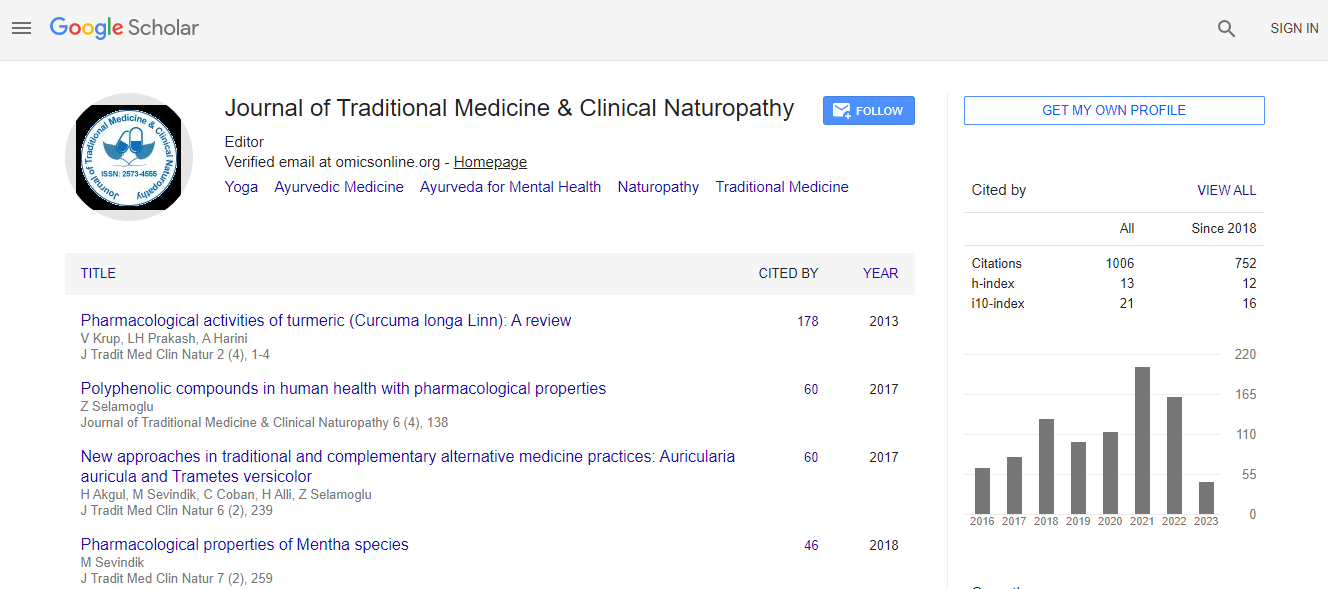Research Article
Acupuncturists in Primary Health Care: Knowing to Legitimate and to Expand
Leandra Andréia de Sousa1,2*, Gláucia Tamburu Braghetto1, Jéssica Oliveira Pigari1 and Maria José Bistafa Pereira1
1Ribeirão Preto College of Nursing (EERP/USP), University of São Paulo, Ribeirão Preto, Brazil
2Avenida dos Bandeirantes, Campus Universitário, Monte Alegre, Ribeirão Preto, SP, Brazil
- *Corresponding Author:
- Leandra Andréia de Sousa
Avenida dos Bandeirantes, Campus Universitário, Monte Alegre
Ribeirão Preto, SP, Brazil
Tel: +55 16 3315-3391
Fax: +55 16 3315-0518
E-mail: leandra.sousa@usp.br, sousa.leandra2015@gmail.com
Received date: May 30, 2017; Accepted date: June 05, 2017; Published date: June 12, 2017
Citation: de Sousa LA, Braghetto GT, Pigari JO, Pereira MJB (2017) Acupuncturists in Primary Health Care: Knowing to Legitimate and to Expand. J Tradit Med Clin Natur 6:223.
Copyright: © 2017 de Sousa LA, et al. This is an open-access article distributed under the terms of the Creative Commons Attribution License, which permits unrestricted use, distribution, and reproduction in any medium, provided the original author and source are credited.
Abstract
The present research takes a different approach to acupuncture. While most researches have studied aspects related to the treatments and effects of acupuncture use, which undoubtedly are of great importance, we are dedicated to studying aspects related to health policies 1. Therefore, we take Primary Health Care as a research field for acupuncture and other alternative and complementary medicines, which are denominated in Brazil, of Integrative and Complementary Practices.
Acupuncture is the fastest growing therapy in the world, including encouragement and recommendations from the World Health Organization for its inclusion in public health systems. In order for acupuncture to be offered in public health systems it is essential to have acupuncturists in sufficient quality and quantity, another aspect that is also discussed by WHO.
Given the relevance of these considerations, in this research, we seeked to map and identify the professionals specialized in acupuncture and who are interested in exercising the offer of this therapeutic practice in Primary Health Care. For this, we seeked to identify the number of acupuncturists; Describe socio-demographic profile of acupuncturists; Identify the different formations in acupuncture; to identify the interest and availability of acupuncturist professionals in acupuncture in primary health care services.
In order to collect data, we prepared a questionnaire and submitted it to a process for validating the appearance and semantics of the content, carried out by five judges with higher education in the health area, specialization in acupuncture and experience in Primary Health Care, which favored the accuracy of the instrument. Only after the validation by the judges the questionnaire was applied to the participants of the research in the online and printed format.

 Spanish
Spanish  Chinese
Chinese  Russian
Russian  German
German  French
French  Japanese
Japanese  Portuguese
Portuguese  Hindi
Hindi 
